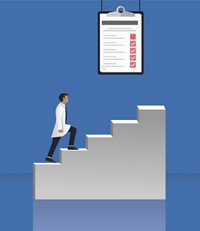Advertisement
Grab your lab coat. Let's get started
Welcome!
Welcome!
Create an account below to get 6 C&EN articles per month, receive newsletters and more - all free.
It seems this is your first time logging in online. Please enter the following information to continue.
As an ACS member you automatically get access to this site. All we need is few more details to create your reading experience.
Not you? Sign in with a different account.
Not you? Sign in with a different account.
ERROR 1
ERROR 1
ERROR 2
ERROR 2
ERROR 2
ERROR 2
ERROR 2
Password and Confirm password must match.
If you have an ACS member number, please enter it here so we can link this account to your membership. (optional)
ERROR 2
ACS values your privacy. By submitting your information, you are gaining access to C&EN and subscribing to our weekly newsletter. We use the information you provide to make your reading experience better, and we will never sell your data to third party members.
Career Tips
Is there enough space in your schedule?
by Brought to you by ACS Careers
April 7, 2022
| A version of this story appeared in
Volume 100, Issue 12

With new technology come new challenges. Being able to see other people’s calendars to schedule meetings with them makes coordinating easier—almost too easy. As our calendars fill up with meeting after meeting, finding free time to actually do your work or strategize about future objectives has become more difficult. Often, people are tempted to stack meetings one after another to maximize productivity. But does that really work? Or are there better ways to optimize your schedule?
Schedule travel and transition time. Remember travel time? When you had to physically move down the hall, across town, or even across the country? While everyone complained about the amount of time wasted in moving from one place to another, that time served a purpose. It allowed time for transition and to mentally close out one topic and prepare for the next one, which allowed you to really focus on the current subject. When scheduling videoconferences, include some “travel” time between them.
Schedule preparation time. Often when meeting about a big project, you don’t get the background material (such as agenda or reports) until shortly before the event. Don’t just assume there will be time to read and digest everything. Actually block time in your schedule to read the materials, and make sure it’s far enough in advance that you can ask for clarification if needed. If you’re presenting, make sure to block time to prepare, practice, and get feedback from others. Even if you have to move the time later on, blocking time on your calendar forces you to think about how long the preparation is likely to take and prevents you from filling all your time with other activities.
Schedule relationship time. No, we’re not talking about date night with your significant other (though that’s also important). Schedule time to have coffee or lunch with former colleagues, call a former classmate and catch up, or look up that document you promised to send to the person you met at a recent conference. If you don’t build time into your schedule to keep in touch with your professional colleagues, it’s amazing how fast they will drift out of your professional network.
Schedule downtime. Everyone needs a break now and then, and sometimes the only way to make sure you get one is to schedule it. Put a time on the calendar to take a walk, go outside and enjoy your lunch, or just turn the phone and email off and think. Your brain needs time to rest and recharge to avoid burnout and work at maximum efficiency. If you set up a regular schedule for when you are unavailable (such as Friday mornings or noon–1:00 p.m. daily), your colleagues will learn to plan around it.
Schedule unscheduled time. With all this scheduling, make sure to leave some time unscheduled for those tasks that pop up and need to be done ASAP. If you don’t, your downtime will quickly be taken over by work tasks, and burnout will not be far behind.
Every person gets 24 h each day, and you can’t save them for later. No matter how you spend them, they disappear, and you get a fresh batch the next day. By planning how you are going to allocate them, then sticking to your plan, you can make the most of your 525,600 min every year.

Get involved in the discussion. The ACS Career Tips column is published the first issue of every month in C&EN. Send your comments and ideas for topics for future columns to careernavigator@acs.org.





Join the conversation
Contact the reporter
Submit a Letter to the Editor for publication
Engage with us on Twitter